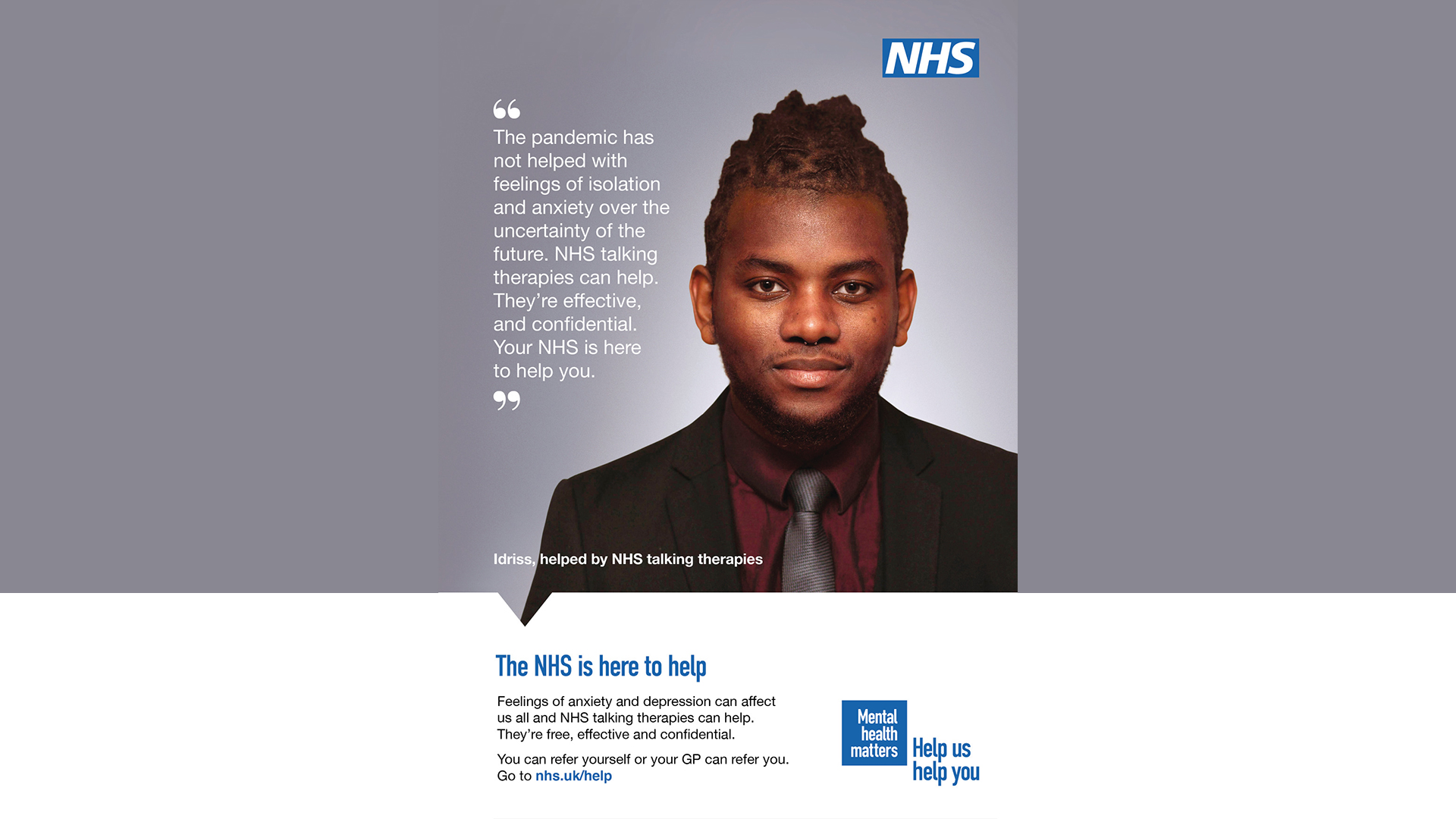A new NHS campaign is encouraging people struggling with their mental health to seek confidential help from NHS talking therapies.
Research found that Black people are a third less likely to ask for professional help and are especially encouraged to make use of the range of free services available for anxiety, depression, and other common mental health problems – either by self-referral or by contacting their GP.
A survey commissioned by NHS England and NHS Improvement found that more than 1 in 3 (36%) Black respondents who reported mental health issues didn’t seek professional help because they didn’t feel comfortable talking to other people (compared to 22% of the general population).
Mental Health Therapist Antoinette said:“The myth that mental health isn’t a Black issue can make us hesitant to admit or talk about depression or anxiety. NHS talking therapies are 100% confidential, so you don’t have to worry about what anyone thinks. Your free video or in-person consultation will put you at ease and help you find the right kind of support for you.”
The NHS offers a range of talking therapies, such as cognitive behavioural therapy (CBT), counselling and guided self-help.
Support is offered in a number of ways, including as an online course, over the phone and via interactive text messaging and one-to-one or group therapy.
If you’d prefer to talk in a language other than English, you can talk to therapists who speak your language or work through a confidential translator.
Idriss was helped by NHS Talking Therapies. He said: “I wasn’t comfortable about talking about my thoughts and feelings, especially with a stranger. But it turns out it was exactly what I needed. NHS talking therapies made me realise that holding things in was part of the problem. It helped that it’s all confidential, I felt I could finally open up and unburden myself.”
Visit nhs.uk/help for more information.

































































